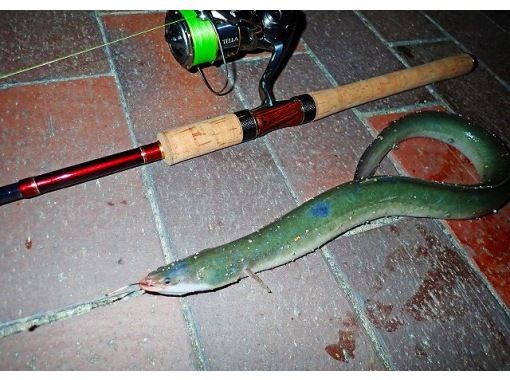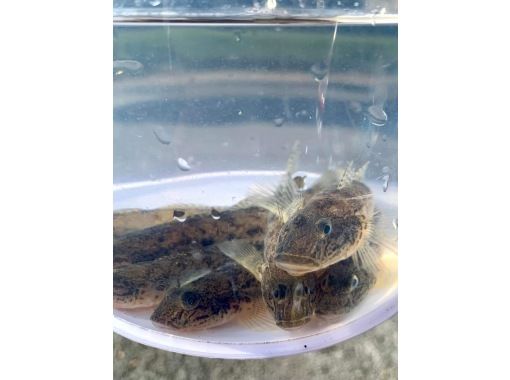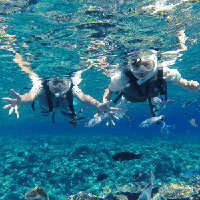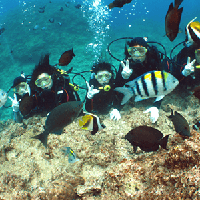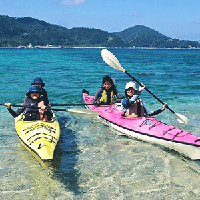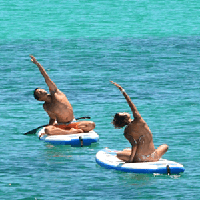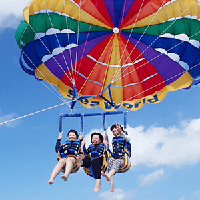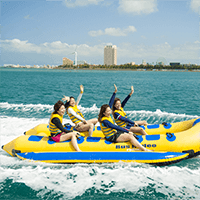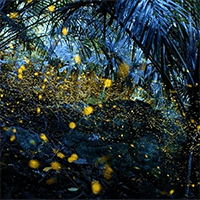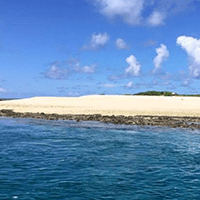Edogawa/Katsushika/Adachi Reservation for Nature observation / Creature observation | Activity Japan
- Age 3~Age 70
- 2~3 hours
- 09:00 / 11:30 / 14:00 / 16:30
Held from spring to autumn Fishing for Japanese eels in the brackish waters of rivers Part 1: 8:00-10:30 Part 2: 10:30-13:00 Part 3: 13:30-16:00 Part 4: 16:00-18:30 This is a tour to fish for eels at the mouths of rivers that run through Tokyo. Japanese eels are born in the western waters of the Mariana Islands. They grow in rivers not only in Japan but also in East Asia, including China, Taiwan, and the Korean Peninsula, and are known to return to the Mariana Islands to spawn. Japanese eels (Anguilla japonica), which belong to the Anguilla genus of the eel family, are widely distributed in East Asia, including Japan, China, Taiwan, and Korea. In Japan, they mainly live south of Honshu, but there have been cases of them being caught in Hokkaido. Rental tackle, fishing rod, and equipment are included, so you can participate empty-handed. Two patterns of fishing will be done: casting fishing and plastic bottle tackle fishing, using earthworms as bait. While waiting for the tackle, you can fish for goby at your feet. The main target is eels, but sometimes you can also catch goby, crabs, and seigo. The tour lasts about 3 hours. Please bring a headlamp, a handy light, and drinks. *If you want to take the fish home, please bring an aeration device (battery-powered bubbler) to prevent oxygen deficiency, a plastic case or fishing bucket to prevent escape, and a cooler box. By train: 15 minutes walk from JR Joban Line or Tokyo Metro Chiyoda Line By car: Please use a nearby parking lot Meeting place: Near the Seven-Eleven Katsushika Kosuge 1-chome store. We will send you a map in advance, so please walk to the point. Migration of Japanese eels Japanese eels spawn in the summer in the waters west of the Mariana Islands in the Pacific Ocean. After hatching, they become willow-leaf-shaped larvae called leptocephalus. Glass eels are carried by ocean currents and reach East Asia in about six months, then transform into long, cylindrical glass eels and ride the high tide into rivers. After that, their transparent bodies start to take on color, and they are called yellow eels. During the yellow eel stage, eels grow large, and eat a variety of foods, including shrimp, crabs, small fish, and insects. The environment in which Japanese eels spend their growth period is wide, from coastal areas to the upper reaches of rivers, and includes not only freshwater areas but also brackish water and seawater. After several years to a dozen years, when they grow to a size of about 40 cm or more for males and about 50 cm or more for females, they begin to mature and are called silver eels. Silver eels leave their familiar rivers and coastal areas and travel to spawning grounds from autumn to winter. They reach the spawning grounds in the Marianas in about six months, spawn, and then end their life. PS: The minimum number of participants is 5 or more.
- Age 3~Age 60
- 2~3 hours
- 07:00 / 09:30 / 12:00 / 14:30
This is a safe, fishing experience for mantis shrimp using a fishing rod at a park in Edogawa Ward. Depending on the season, we will also have a goby fishing experience, so you can learn to fish with bait. After catching your fish, we will give a lecture on how to eat them and how to care for them. Meet at the fishing spot and start fishing for mantis shrimp and goby. If you want to take some home, please don't forget to bring a cooler and ice. Items to bring: hat, drinks, cooler + ice, swimsuit, change of clothes, simple tent Items to be provided by us: 1 set of fishing gear We look forward to your participation. Thank you, Nogawa Nature School Sonoda
最近チェックしたプラン
Please wait a moment
